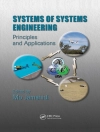There remains considerable uncertainty surrounding the future of effective weed control in agriculture, particularly due to the environmental impact of herbicides, as well as increasing levels of herbicide resistance. In Conservation Agriculture (CA) systems where ploughing has been replaced with no-tillage systems, weed management without reliance on herbicides has proven to be even more challenging.
Weed management in Conservation Agriculture systems reviews the range of alternative, non-chemical methods of weed control which can be implemented to improve the productivity and sustainability of CA. These methods include cultural and biological techniques such as allelopathy and thermal weed control. The book also assesses ways of optimising weed control in perennial, horticultural and other crops.
With its detailed exploration of weed management in specific production systems, as well as the range of weed management techniques available, the book provides its readers with the means necessary to implement more sustainable methods of weed control that protect both yields and the environment.
Cuprins
- 1.Weed ecology in Conservation Agriculture systems: an overview: Seyed Vahid Eslami, University of Birjand, Iran;
- 2.Modelling weed dynamics in Conservation Agriculture systems: Jose Gonzalez-Andujar, CISC, Spain;
Part 1 Cultural, physical and chemical weed management techniques
- 3.Cultural techniques to control weeds in Conservation Agriculture systems: Francisco Skora Neto, IAPAR, Brazil;
- 4.The use of allelopathy in weed control in Conservation Agriculture systems: Muhammad Farooq, Sultan Qaboos University, Oman;
- 5.Thermal weed control in Conservation Agriculture systems: Bernhard Streit, Bern University of Applied Sciences, Switzerland;
- 6.State-of-the-art of the use of herbicides in Conservation Agriculture systems: Per Kudsk, Aarhus University, Denmark;
- 7.Advances in the reduction of herbicide use in Conservation Agriculture systems: Stéphane Cordeau, INRAE, France;
Part 2 Weed management in specific production systems
- 8.Weed management in perennial Conservation Agriculture systems: Emilio González-Sánchez, University of Cordoba, Spain;
- 9.Weed management in horticultural Conservation Agriculture systems: Marcelo Zanella, EPAGRI, Brazil;
- 10.Weed management in organic Conservation Agriculture systems: Paolo Barberi, Scuola Superiore Sant’Anna, Italy;
- 11.Weed management in Conservation Agriculture-based integrated crop production systems: Ademir Calegari, IAPAR, Brazil;
- 12.Farmers’ testimonies on weed management in Conservation Agriculture systems: Gottlieb Basch, University of Evora, Portugal;
Despre autor
Dr Paolo Bàrberi is Professor of Agronomy and Field Crops and Head of the Agroecology Group at the Scuola Superiore Sant’Anna (SSSA), an internationally-renowned university in Pisa, Italy (ranked number 4 in the world among small universities, according to the Times Higher Education World University Rankings). Professor Bàrberi is a founding member and Vice-President of Agroecology Europe and has written over 330 publications on topics in sustainable agriculture, agrobiodiversity and agroecology.












